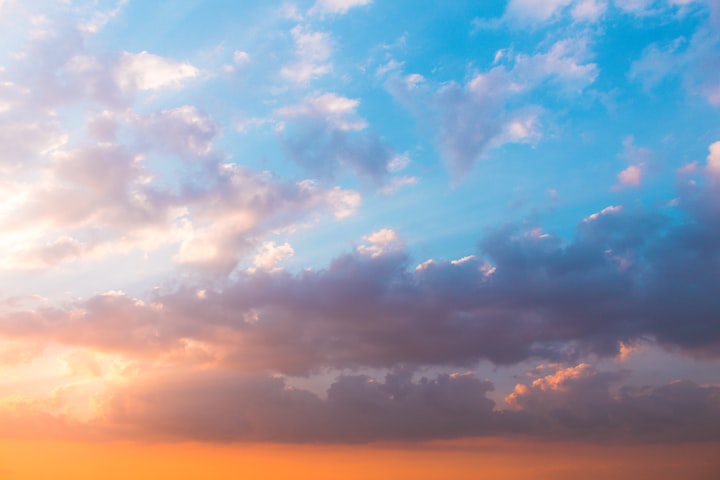How Nature Can Make You Kinder, Happier, and More Creative
Nature is the best healer!
I've been a devoted explorer my entire life.
Yet, despite the fact that I've generally accepted that climbing in nature had numerous mental advantages, I've never had a lot of science to uphold me… up to this point, that is. Researchers are starting to discover proof that being in nature significantly affects our minds and our conduct, assisting us with decreasing uneasiness, agonizing, and stress, and increment our consideration limit, inventiveness, and our capacity to associate with others.
“People have been discussing their profound experiences in nature for the last several 100 years—from Thoreau to John Muir to many other writers,” says researcher David Strayer, of the University of Utah. “Now we are seeing changes in the brain and changes in the body that suggest we are physically and mentally more healthy when we are interacting with nature.”
While he and different researchers might accept nature benefits our prosperity, we live in a general public where individuals invest increasingly more energy inside and on the web—particularly youngsters. Discoveries on how nature further develops our cerebrums carries added authenticity to the call for safeguarding normal spaces—both metropolitan and wild—and for investing more energy in nature to lead better, more joyful, and more inventive lives.
Here are a portion of the manners in which that science is showing how being in nature influences our minds and bodies.
Being in nature diminishes pressure
Plainly climbing—and any active work—can lessen pressure and uneasiness. However, there is something in particular about being in nature that might expand those effects.
In one late examination led in Japan, members were relegated to walk either in a woodland or in a metropolitan place (going for strolls of equivalent length and trouble) while having their pulse changeability, pulse, and circulatory strain estimated. The members additionally rounded out polls about their states of mind, feelings of anxiety, and other mental measures.
Results showed that the individuals who strolled in backwoods had fundamentally lower pulses and higher pulse inconstancy (demonstrating more unwinding and less pressure), and announced better mind-sets and less nervousness, than the individuals who strolled in metropolitan settings. The specialists presumed that there is something in particular about being in nature that beneficially affected pressure decrease, far in excess of what practice alone may have created.
In another study, researchers in Finland found that urban dwellers who strolled for as little as 20 minutes through an urban park or woodland reported significantly more stress relief than those who strolled in a city center.
The reasons for this effect are unclear; but scientists believe that we evolved to be more relaxed in natural spaces. In a now-classic laboratory experiment by Roger Ulrich of Texas A&M University and colleagues, participants who first viewed a stress-inducing movie, and were then exposed to color/sound videotapes depicting natural scenes, showed much quicker, more complete recovery from stress than those who’d been exposed to videos of urban settings.
These studies and others provide evidence that being in natural spaces— or even just looking out of a window onto a natural scene—somehow soothes us and relieves stress.
Nature makes you happier and less brooding
I've generally discovered that climbing in nature causes me to feel more joyful, and obviously diminished pressure might be a major piece of the motivation behind why. However, Gregory Bratman, of Stanford University, has discovered proof that nature might affect our mind-set otherly, as well.
In one 2015 investigation, he and his associates arbitrarily allotted 60 members to a 50-minute stroll in either a characteristic setting (oak forests) or a metropolitan setting (along a four-path street). Previously, then after the fact the walk, the members were evaluated on their passionate state and on psychological measures, for example, how well they could perform errands requiring momentary memory. Results showed that the individuals who strolled in nature experienced less uneasiness, rumination (zeroed in consideration on regrettable parts of oneself), and negative effect, just as more sure feelings, in contrast with the metropolitan walkers. They additionally worked on their presentation on the memory assignments.
In another study, he and his colleagues extended these findings by zeroing in on how walking in nature affects rumination—which has been associated with the onset of depression and anxiety—while also using fMRI technology to look at brain activity. Participants who took a 90-minute walk in either a natural setting or an urban setting had their brains scanned before and after their walks and were surveyed on self-reported rumination levels (as well as other psychological markers). The researchers controlled for many potential factors that might influence rumination or brain activity—for example, physical exertion levels as measured by heart rates and pulmonary functions.
Even so, participants who walked in a natural setting versus an urban setting reported decreased rumination after the walk, and they showed increased activity in the subgenual prefrontal cortex, an area of the brain whose deactivation is affiliated with depression and anxiety—a finding that suggests nature may have important impacts on mood.
Bratman believes results like these need to reach city planners and others whose policies impact our natural spaces. “Ecosystem services are being incorporated into decision making at all levels of public policy, land use planning, and urban design, and it’s very important to be sure to incorporate empirical findings from psychology into these decisions,” he says.
Nature relieves attention fatigue and increases creativity
Today, we live with pervasive innovation intended to continually pull for our consideration. In any case, numerous researchers accept our minds were not made for this sort of data siege, and that it can prompt mental weariness, overpower, and burnout, requiring "consideration rebuilding" to return to a typical, solid state.
Strayer is one of those specialists. He accepts that being in nature reestablishes drained consideration circuits, which would then be able to assist us with being available to innovativeness and critical thinking.
"At the point when you utilize your cell to talk, text, shoot photographs, or whatever else you can do with your cell, you're tapping the prefrontal cortex and causing decreases in intellectual assets," he says.
“If you’ve been using your brain to multitask—as most of us do most of the day—and then you set that aside and go on a walk, without all of the gadgets, you’ve let the prefrontal cortex recover,” says Strayer. “And that’s when we see these bursts in creativity, problem-solving, and feelings of well-being.”
Nature might assist you with being thoughtful and liberal
At whatever point I go to places like Yosemite or the Big Sur Coast of California, I appear to get back to my home life prepared to be more kind and liberal to people around me—simply ask my better half and children! Presently some new investigations might reveal insight into why that is.
In a progression of analyses distributed in 2014, Juyoung Lee, GGSC chief Dacher Keltner, and different specialists at the University of California, Berkeley, contemplated the likely effect of nature on the readiness to be liberal, trusting, and accommodating toward others, while taking into account what variables may impact that relationship.
As a feature of their examination, the analysts presented members to pretty much emotionally lovely nature scenes (whose magnificence levels were evaluated autonomously) and afterward saw how members acted playing two financial aspects games—the Dictator Game and the Trust Game—that action liberality and trust, separately. In the wake of being presented to the more lovely nature scenes, members acted all the more liberally and more confiding in the games than the individuals who saw less delightful scenes, and the impacts gave off an impression of being because of comparing expansions in certain feeling.
In another part of the study, the researchers asked people to fill out a survey about their emotions while sitting at a table where more or less beautiful plants were placed. Afterwards, the participants were told that the experiment was over and they could leave, but that if they wanted to they could volunteer to make paper cranes for a relief effort program in Japan. The number of cranes they made (or didn’t make) was used as a measure of their “prosociality” or willingness to help.
Results showed that the presence of more beautiful plants significantly increased the number of cranes made by participants, and that this increase was, again, mediated by positive emotion elicited by natural beauty. The researchers concluded that experiencing the beauty of nature increases positive emotion—perhaps by inspiring awe, a feeling akin to wonder, with the sense of being part of something bigger than oneself—which then leads to prosocial behaviors.
Support for this theory comes from an experiment conducted by Paul Piff of the University of California, Irvine, and colleagues, in which participants staring up a grove of very tall trees for as little as one minute experienced measurable increases in awe, and demonstrated more helpful behavior and approached moral dilemmas more ethically, than participants who spent the same amount of time looking up at a high building.
Nature makes you “feel more alive”
With these advantages to being out in nature, it's presumably nothing unexpected that something about nature causes us to feel more invigorated and essential. Being outside gives us energy, makes us more joyful, assists us with diminishing the regular burdens of our overscheduled lives, makes the way for innovativeness, and assists us with being thoughtful to other people.
Nobody knows whether there is an optimal measure of nature openness, however Strayer says that long-lasting hikers propose at least three days to truly turn off from our regular day to day existences. Nor would anyone be able to say without a doubt how nature looks at to different types of pressure help or consideration rebuilding, like rest or contemplation. Both Strayer and Bratman say we need much more cautious exploration to coax out these impacts before we arrive at any authoritative resolutions.
Still, the research does suggest there’s something about nature that keeps us psychologically healthy, and that’s good to know…especially since nature is a resource that’s free and that many of us can access by just walking outside our door. Results like these should encourage us as a society to consider more carefully how we preserve our wilderness spaces and our urban parks.
And while the research may not be conclusive, Strayer is optimistic that science will eventually catch up to what people like me have intuited all along—that there’s something about nature that renews us, allowing us to feel better, to think better, and to deepen our understanding of ourselves and others.
“You can’t have centuries of people writing about this and not have something going on,” says Strayer. “If you are constantly on a device or in front of a screen, you’re missing out on something that’s pretty spectacular: the real world.”
About the Creator
Iqra Mukhtar
I am a student of English Literature.I love to portray my own reflections into the beauty of words for others.
I just love to explore different things along with a dream to explore the world.
I only make others familiar with my thoughts.







Comments
There are no comments for this story
Be the first to respond and start the conversation.